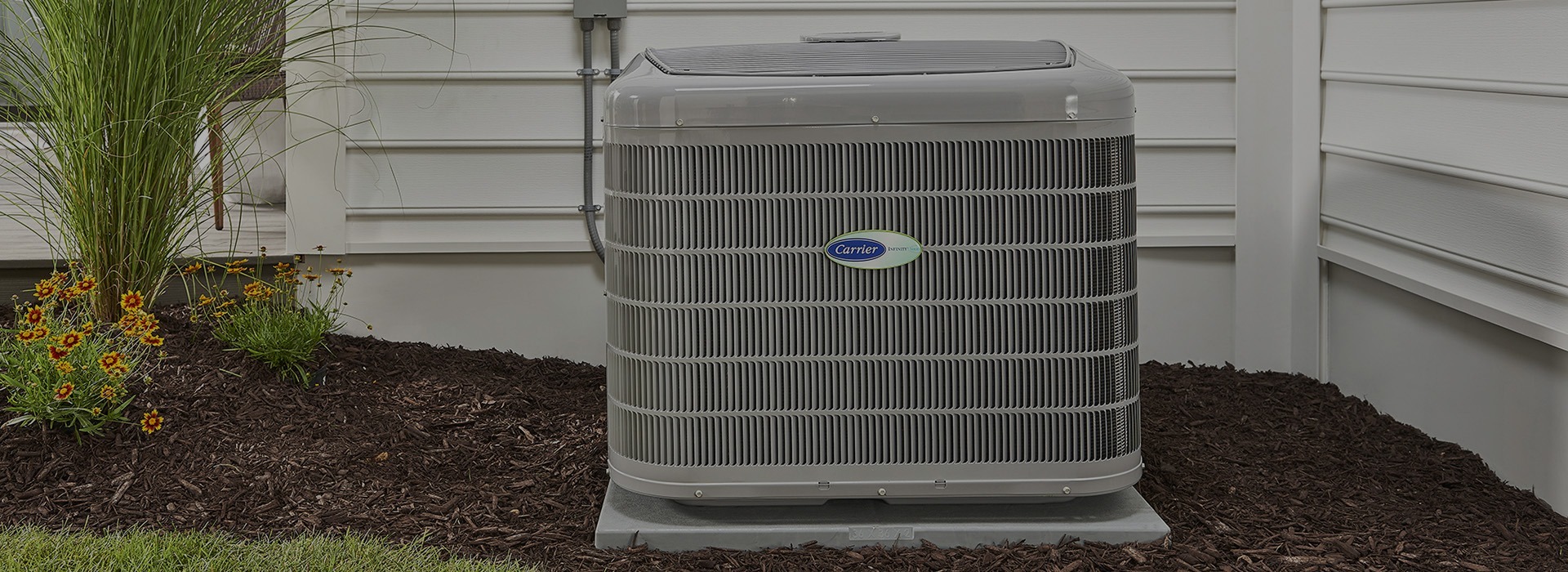Upgrade Your System Today with DMAKS HVAC Installation Services.
Wiki Article
Energy-Efficient Heating And Cooling Systems to Reduce Utility Expenses
As power expenses remain to rise, the importance of energy-efficient HVAC systems becomes progressively apparent. These systems not only promise considerable financial savings on energy expenses yet likewise add to a much more sustainable future by lessening energy consumption. With various options available, including geothermal heatpump and ductless mini-splits, building owners encounter a wide range of choices that can enhance comfort and air high quality. Recognizing the vital attributes and maintenance requirements is crucial to making best use of these benefits. What elements should be prioritized when picking the appropriate system for your requirements?Benefits of Energy-Efficient HVAC Solutions
Energy-efficient a/c systems supply many benefits that extend past simple expense savings. One substantial benefit is the reduced environmental impact. By taking in less power, these systems add to decrease greenhouse gas emissions, helping to battle climate change and advertise sustainability. This aligns with enhancing societal demands for eco-friendly techniques in property and commercial settings.Furthermore, energy-efficient heating and cooling systems usually offer enhanced convenience levels. Much of these systems feature sophisticated modern technology that enables for better temperature level control and boosted air top quality (DMAKS HVAC). This brings about a much healthier indoor setting, which is particularly vital for people with allergic reactions or respiratory issues
Furthermore, purchasing energy-efficient HVAC systems can improve building worth. As even more customers prioritize power performance, homes and structures geared up with these systems may bring in higher bids in the property market.
Kinds Of Energy-Efficient Heating And Cooling Options
How can homeowners and organizations choose one of the most appropriate energy-efficient a/c alternatives for their requirements? The market uses a variety of energy-efficient a/c systems, each designed to improve comfort while decreasing power intake.One alternative is the variable cooling agent flow (VRF) system, which efficiently controls the temperature level in several areas within a structure. This system adapts its refrigerant circulation to match the wanted temperature, leading to significant energy cost savings.
Another popular choice is geothermal heatpump, which use the planet's steady temperature level to heat and great spaces. By transferring warmth to and from the ground, these systems demonstrate outstanding efficiency, specifically in modest climates.
Furthermore, ductless mini-split systems supply an energy-efficient choice for homes doing not have ductwork. These systems allow for zone-specific heating & cooling, lowering energy waste in vacant locations.
Lastly, high-efficiency furnaces and ac unit, with sophisticated SEER and AFUE ratings, use reliable climate control while eating less power than typical designs. By assessing these options, house owners and services can choose an a/c system tailored to their certain requirements and power efficiency objectives.
Key Attributes to Think About

Following, investigate the kind of compressor utilized in the system. DMAKS HVAC. Variable-speed compressors can readjust their outcome to match the home heating or cooling need, leading to boosted comfort and energy financial savings contrasted to single-speed models. Furthermore, seek systems equipped with wise thermostats that supply programmable setups and remote gain access to, enabling far this post better control over power consumption
An additional crucial attribute is the system's air filtration ability. High-efficiency filters can enhance interior air top quality and minimize energy consumption by guaranteeing the system operates effectively. Take into consideration the kind of refrigerant used; modern systems frequently utilize green cooling agents that have a lower ecological effect.
Last but not least, make certain that the system works with zoning modern technology, which enables customized temperature level control in various locations of your home, enhancing comfort while decreasing power usage.
Tips for Selecting the Right System


Next, think about power efficiency ratings, especially the Seasonal Power Effectiveness Proportion (SEER) for cooling down systems and the Yearly Gas Application Efficiency (AFUE) for home heating systems. Higher ratings indicate better effectiveness, which can cause significant savings on energy expenses gradually.
Furthermore, evaluate the kind of HVAC system that best suits your way of living and budget. Options consist of air conditioning, ductless mini-splits, and heatpump, each with its very own collection of benefits and downsides.
Do not neglect the importance of correct installation and sizing; an inaccurately sized system can lead to inefficiencies and boosted wear. Seek advice from with an expert a knockout post Heating and cooling professional to obtain expert recommendations customized to your home's unique demands. This detailed strategy will certainly make sure that you choose an energy-efficient heating and cooling system that meets your requirements and budget properly.
Upkeep for Optimal Effectiveness
Once the right HVAC system is in place, ongoing upkeep becomes essential to ensuring optimum effectiveness and long life. A well-maintained system runs better, leading to lower power usage and lowered utility bills. Regular inspections and tune-ups ought to be scheduled at the very least twice a year-- as soon as before the air conditioning period and as soon as before the heating season.
Home owners must likewise be cautious concerning monitoring their HVAC system's efficiency. Uncommon sounds, changing temperature levels, or enhanced power costs can suggest underlying problems that require prompt attention. By resolving these concerns promptly, home owners can stop expensive repair work and expand the lifespan of their systems.
Purchasing a maintenance strategy with a qualified service technician not just boosts performance however likewise supplies comfort, knowing that the system is running at its ideal. DMAKS HVAC. Normal upkeep is for that reason vital for maintaining power performance and decreasing total operational expenses
Verdict
To conclude, energy-efficient a/c systems offer a viable solution for reducing utility costs while boosting convenience and air high quality. By integrating innovative technologies and choices such as geothermal heatpump and ductless mini-splits, residential or commercial property proprietors can attain significant power cost savings and add to ecological sustainability. Mindful consideration of system attributes and continuous upkeep additionally guarantees optimum efficiency, making energy-efficient systems a sensible investment for both financial and environmental benefits.Report this wiki page